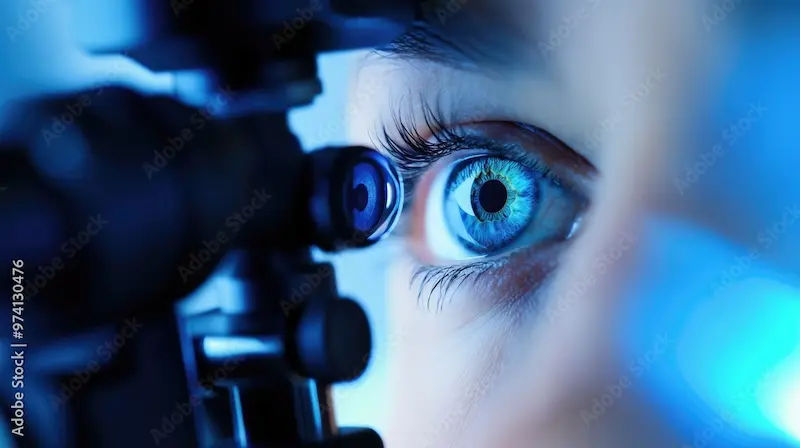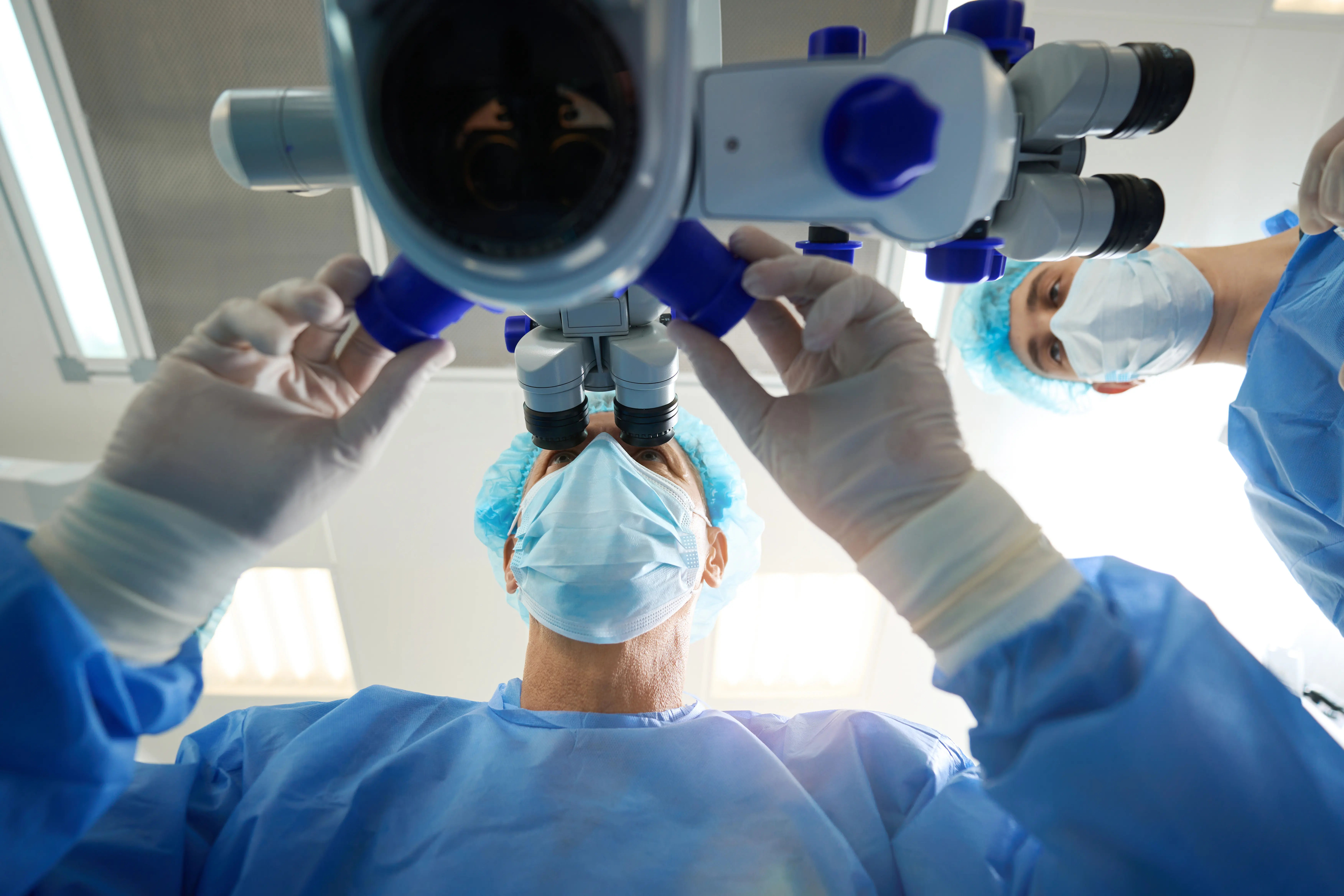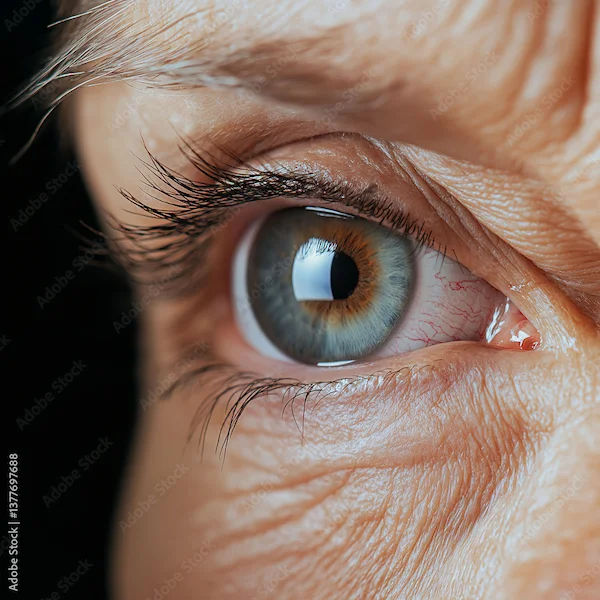Is It Possible To Replace Lens After Cataract Surgery?
Wondering if a lens can be replaced after cataract surgery? Discover when and why intraocular lens (IOL) replacement may be needed, the procedure involved, and what to expect during recovery.

Written by
Last updated on 13th Jan, 2026

Introduction
If you or a loved one has undergone cataract surgery, you might wonder whether the artificial lens (intraocular lens or IOL) implanted during the procedure can be replaced later. The short answer is yes, but it’s not always necessary or recommended unless there’s a specific reason. In this article, we’ll explore why someone might need a lens replacement, how the procedure works, and what to expect. Let’s dive in!
Understanding Cataract Surgery and IOLs
Cataract surgery involves removing the eye’s cloudy natural lens (affected by cataracts) and replacing it with an artificial intraocular lens (IOL). These IOLs are designed to last a lifetime, and most people never need a replacement. However, in some cases, a second surgery may be required.
When Might a Lens Replacement Be Needed?
While rare, there are a few situations where replacing the IOL becomes necessary:
1. Incorrect Lens Power: Sometimes, the implanted lens may not provide the desired vision correction due to calculation errors or unexpected healing responses.
2. Dislocation or Movement: The IOL may shift out of position over time, causing blurred or double vision.
3. Clouding of the Lens Capsule (PCO): Though not a lens replacement, a common post-surgery issue is posterior capsule opacification (PCO), where the membrane behind the lens becomes cloudy. This is treated with a quick laser procedure (YAG capsulotomy) rather than replacing the IOL.
4. Advanced Technology Upgrades: Some patients may opt for a newer lens (e.g., multifocal or toric IOLs) if they weren’t available or chosen initially.
5. Complications Like Inflammation or Infection: Rarely, an IOL may need replacement if it causes persistent irritation or infection.
Consult Top Specialists for Personalised Tips
How Is the Lens Replacement Procedure Done?
Replacing an IOL is more complex than the initial cataract surgery. Here’s what typically happens:
1. Evaluation: Your eye doctor will assess your eye health and determine if replacement is necessary.
2. Surgical Removal: The surgeon makes a small incision to remove the existing IOL.
3. New Lens Implantation: A new IOL is inserted, often with additional support if needed.
4. Recovery: Healing takes a few weeks, with follow-up visits to monitor progress.
Risks and Considerations
While lens replacement is possible, it carries higher risks than the initial surgery, including:
Increased chance of infection or swelling.
Retinal detachment (rare but serious).
Longer recovery time.
Therefore, doctors usually recommend replacement only if absolutely necessary.
Can You Avoid Needing a Replacement?
To minimise the chances of needing a second surgery:
Choose an experienced surgeon to ensure precise IOL selection and placement.
Follow post-surgery care instructions to prevent complications.
Attend all follow-up visits to catch any issues early.
When to See a Doctor?
If you experience:
Sudden vision changes after cataract surgery.
Persistent pain, redness, or flashes of light.
Double vision or worsening blurriness.
Consult your eye specialist immediately.
Conclusion
While lens replacement after cataract surgery is possible, it’s not common. Most IOLs last a lifetime without issues. If you have concerns about your vision post-surgery, discuss them with your doctor to explore the best solution.
Consult Top Eye Surgeon
Consult Top Specialists for Personalised Tips

Dr. Atheeshwar Das
Ophthalmologist
15 Years • MBBS,DO,DNB(Gold Medal),FRCS(Glasgow),FICO(UK),
Chennai
Apollo Speciality Hospitals OMR, Chennai
Dr. Ashu Agarwal
Ophthalmologist
24 Years • MBBS, MS
Delhi
Apollo Hospitals Indraprastha, Delhi

Dr. Zennat Tajmin Shah
Ophthalmologist
24 Years • MBBS,DO,DNB (ophthalmology), Vitreo Retina Surgeon
Kolkata
Titanium Eye Care, Kolkata

Dr. Smriti Nagpal
Ophthalmologist
13 Years • MBBS , MS (Ophthalmology)
New Delhi
Sunshine mediclinic, New Delhi
Dr. Padmini S
Ophthalmologist
4 Years • MBBS,MS
Bengaluru
Apollo Medical Center, Marathahalli, Bengaluru
Consult Top Eye Surgeon

Dr. Atheeshwar Das
Ophthalmologist
15 Years • MBBS,DO,DNB(Gold Medal),FRCS(Glasgow),FICO(UK),
Chennai
Apollo Speciality Hospitals OMR, Chennai
Dr. Ashu Agarwal
Ophthalmologist
24 Years • MBBS, MS
Delhi
Apollo Hospitals Indraprastha, Delhi

Dr. Zennat Tajmin Shah
Ophthalmologist
24 Years • MBBS,DO,DNB (ophthalmology), Vitreo Retina Surgeon
Kolkata
Titanium Eye Care, Kolkata

Dr. Smriti Nagpal
Ophthalmologist
13 Years • MBBS , MS (Ophthalmology)
New Delhi
Sunshine mediclinic, New Delhi
Dr. Padmini S
Ophthalmologist
4 Years • MBBS,MS
Bengaluru
Apollo Medical Center, Marathahalli, Bengaluru




